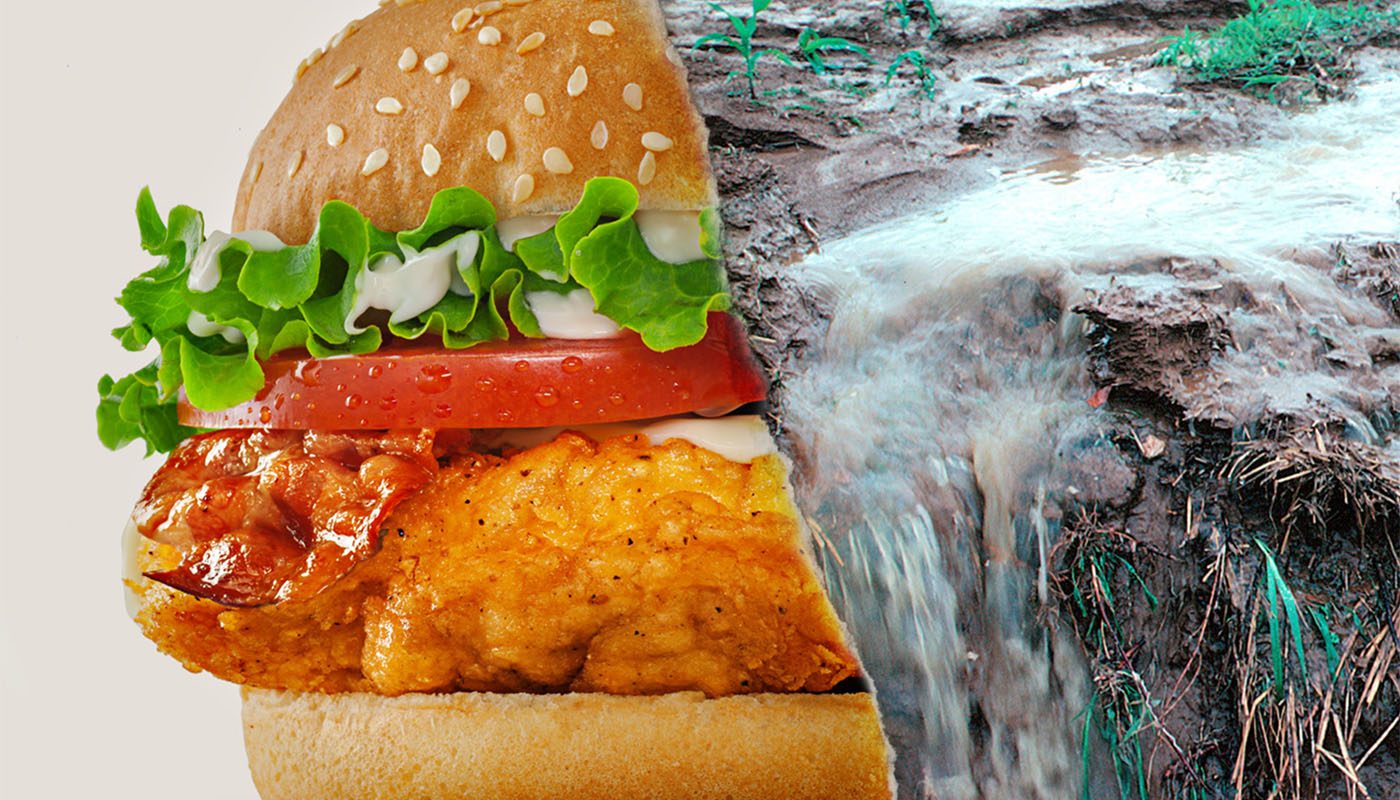REDUCING MEAT INDUSTRY POLLUTION
David and Lucille Packard Foundation, the McKnight Foundation, and the Food and Farm Communications Fund

The meat industry in the United States, and the vast system of industrial agriculture that produces animal feed, rank among the top polluters in the world. Pesticides and fertilizers choke waterways, tilling and inputs contribute to climate change, and agricultural expansion is destroying America’s last remaining prairie. We didn’t hesitate at the chance to take these issues on.
FOCUS
With support from the David and Lucille Packard Foundation, the McKnight Foundation, and the Food and Farm Communications Fund, we set out to hold leading food companies accountable for reducing the environmental consequences of their meat supply chains. We started by conducting in-depth company research, satellite and supply chain mapping, economic analysis, and stakeholder interviews. Supported by this research and in partnership with Mighty Earth, we then crafted a groundbreaking report, Mystery Meat II, that cast light on the meat industry’s destruction of the American heartland. And, today, we’re in the midst of organizing around the issue across the Midwest and Gulf Coast, bringing together local community leaders, customers and investors to pressure Tyson Foods and other meat suppliers to adopt more sustainable practices.
IMPACT
- Raised public visibility and pressure on the largest polluters in the industry to take critical actions and commit to more sustainable agricultural practices.
- Generated over 150 media articles from publications like The Guardian, DW, and Yahoo News, connecting Tyson to nationwide water contamination, including the largest dead zone on record in the Gulf of Mexico.
- Over 260 local community, farmer, environmental, and business groups signed an open letter to Tyson’s CEO urging more sustainable farming practices to prevent pollution.
- With our support, shareholders filed a resolution with the board requesting action to reduce Tyson’s pollution impacts.
- Won a commitment from Tyson to implement better on-farm practices on 2 million acres within its agricultural footprint.
